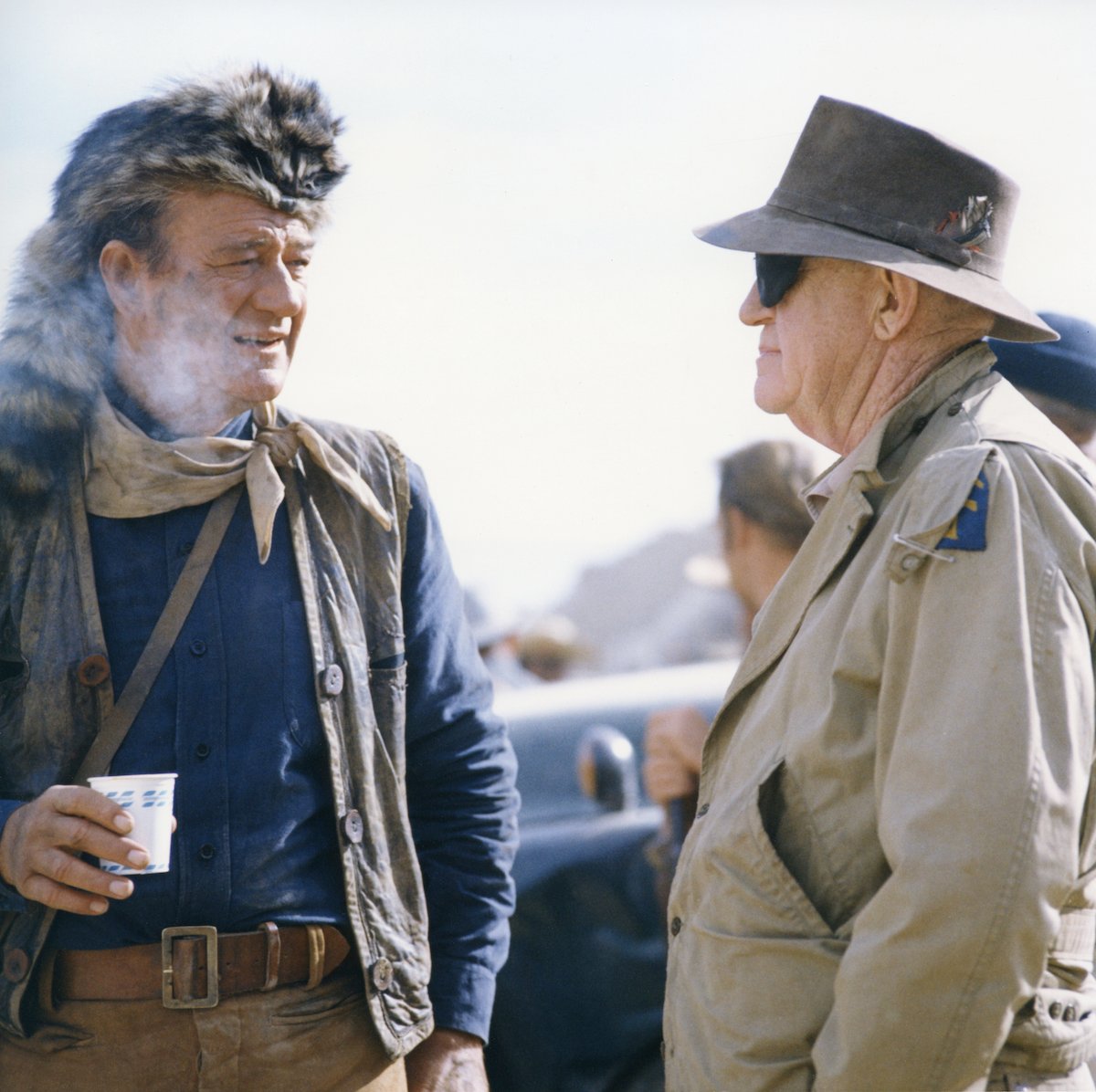John Wayne Movies: The Duke Got Trademark Look From Director John Ford
John Wayne was unmistakable in movies. His career lasted six decades because of his indelible presence on camera. One of his trademark attributes could be credited to his frequent director, John Ford. Ford directed Wayne in 14 movies and had a relationship with him via the studios even when he wasn’t directing. It was Ford who gave Wayne his key look on film.

Paramount Home Entertainment released the Wayne/Ford classic The Man Who Shot Liberty Valance on 4K UHD on May 17. In some of the bonus features, Ford’s grandson Dan and film critic Molly Haskell discuss what Wayne brought to movies, and how Ford inspired him.
John Ford told John Wayne to create ‘an intense look’ for movies
In a John Wayne movie, the audience knew that when Wayne’s character looked intensely at the villain, he meant business. As a director, Ford knew the importance of an intense look. Cinema is a visual medium, after all.
“My grandfather always told Duke Wayne, he says ‘When you need to convey something you need to just, give ‘em an intense look. Give ‘em an intensity. Let the audience read into that look,’” Dan Ford said. “John Wayne was a fabulous nonverbal communicator. John Wayne was a much better actor than people give him credit for.”
Critics underestimated John Wayne movies
Haskell said that critics underestimated Wayne throughout his career. Wayne became such a staple in westerns and war movies that critics assumed he was playing himself. Of course, Wayne was not actually a sheriff or veteran, though he did have his own ranch. Haskell gave Wayne credit where it’s due.
“The idea of acting so often has been disguising yourself, playing characters who are completely alien from what is perceived as your basic personality,” Haskell said. “So an actor who seems to just be playing himself or playing a role that is close to what he is is not seen as acting at all.”
The critical tide has turned
Haskell was happy to see critics raise their esteem for Wayne to match that of his fans. Near the end of Wayne’s career in the ‘70s, and after his death, critics could be dismissive of that singular look that Ford taught him.
“John Wayne’s one of the great movie actors of all time,” Haskell said. “In the ‘70s and ‘80s this was not a popular point of view. He was a national icon but among critics and the eastern liberal establishment he was not a favorite, partly because of his politics but mostly because he acted in westerns and westerns themselves were not taken seriously.”
As the dominant genre of Wayne’s work, westerns themselves have risen in esteem too. Especially the westerns Ford directed, with or without Wayne, now get their due. His grandson was happy to see that.
“He had a tender, sentimental side that certainly shows in his work,” Dan Ford said.


